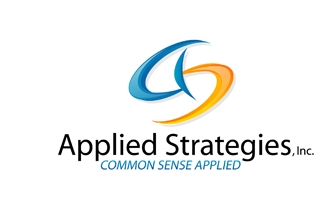Managing expectations is critical in any endeavour and no more so, I have learned the hard way, in writing a column. So readers that have or instinctively gravitate towards a finite law firm, please don’t waste your time with this column in 2012. Definitely Mabey will likely just be a frustrating experience and one not representative of the value-add to the profession delivered by Canadian Lawyer magazine.
Now before the concern arises among those folks kind enough to read the column monthly that I have had too much free time these past couple of weeks, rest assured that is not the case. The column’s intent will continue to be to deliver practical sensible commentary and solutions to issues currently facing law firm management.
"...the power of information is in its communication not its control..." |
This commitment, fuelled by a belief that the power of information is in its communication not its control, led to a change that will be seen in Definitely Mabey in 2012. I decided to follow Harry Kaiser’s advice of “I make progress by having people around me who are smarter than I am—and listening to them.” So I have contacted a few individuals whose “smarts” I really respect and asked each of them to guest write a column in 2012 and the only boundaries I have for them about the column are:
- It has to be relevant in its topic;
- It has to be practical in its message;
- It has to potentially impact law firm profitability in a positive way.
I am pleased to say they all have graciously agreed to take on the task and write on a variety of topics that will exceed all of the above boundaries. The first of these columns will appear in February and will tackle some practical challenges around business development in all law firms and how to overcome them.
Whether a perfect segue or not, I will use it to address some other holiday reading that in the tradition of the industry appears to focus on identifying the challenges, not the solutions.
While it can be a hugely rewarding profession to be part of, I agree that there are some challenges to practising law that may be unique to the size of the firm. However, the real growth in the profession (much like the economy) will be from the activities of the small- to medium-size firms and boutiques so it is not enough to continue to identify the challenges of practising in such size firms without equal time being spent on possible solutions to these challenges.
Below is a sampling of the “challenges” raised about practising in a small firm:
Local perspective—local client base lacks multi-jurisdictional presence which limits both type of work and type of clients;
-
Little formal training—more on-the-job training than formal training, which can lead to a transfer of bad habits;
-
Social and professional isolation—limited personnel reduces opportunity to socialize and share knowledge and seek guidance;
-
Little prestige—not the same prestige or name recognition of the larger firms;
-
Limited firm resources—requires lawyers to assume roles outside of “job description,” i.e. make their own photocopies and file their own documents with the court; and
-
Modest salaries and fewer benefit options—generally paid lower salaries and small firms have less leverage to negotiate volume discounts on benefits.
I am not saying these are not real challenges, but rather that many firms have faced and addressed these challenges in innovative and creative ways and in fact have changed weaknesses to strengths. Some of their successes are public knowledge and others will only be for internal consumption.
While no one elected me their defender, nor would they want to, I do think it’s only fair to provide some commentary to the challenges raised by various authors so that a balanced perspective is maintained about how some of these challenges have and may be dealt with in the future. The chart below provides those details:
| Challenge | Solutions |
| Local Perspective | • A number of local firms with a national presence in one or two selected areas is growing as evidenced by growing number of national clients being serviced in part by firms under 50 lawyers—in part because they are nimbler on their feet, in part because they are less expensive; and in part they care more about servicing their clients than their egos. |
| Little Formal Training | • Lots of firms have lawyers who have to scramble to make the CLE hours requirement of their bar societies and they are not all at small firms; • There is a growing shift back to the value of "carrying bags" over theoretical teachings by lawyers / academics that have not actually practised what they are preaching i.e. there are many litigators in large firms whom have never been to court; • There are only so many law schools in the Canada and these same lawyers shared the same professors and book learning as their colleagues in the larger firms. |
| Social & Professional Isolation | • Where do you think the competition is higher for the best assignments if not at large law firms; • With the "hour quotas" that still remain (formally or informally) just how much socialization do you think goes on at the larger firms; • Many bar societies offer both libraries for firms where the cost to support one might be too high as well as programs where lawyers at other firms will share their experiences. |
| Lack Prestige | • All the findings continue to point at clients hiring lawyers and not firms and it is the lawyers and not the firms who maintain the on-going relationship. There are plenty of examples of lawyers whose personal prestige out shines the firms they are with—and they are not all with large firms; • There are many lawyers from small firms in many communities across this country who not only enjoy the trust and respect of their clients but also of their communities. (Note: more lawyer jokes and jokes about the legal profession in major centres then elsewhere.) |
| Lack Firm Resources | • While there still may be a gap with all the down-sizing (official and un-official) that has taken place the difference in the level of resources has shrunken; • Larger firms tend to have more bureaucracy and layers of people and processes between the lawyer and their work product that goes to the client or courts which can lessen the job satisfaction of not having "hands on" the final product. |
| Modest Salaries & Fewer Benefit Options | • I wonder if on a per hour basis many of the younger lawyers really do earn as much as their counterparts in smaller firms; • Insurance benefits offerings through bar societies and Canadian Bar entities now rival insurance carriers in both coverage and premium; • Some insurance agents have started to pull together (pool) smaller groups to enable the offering of a full range of benefits. |
Lest there be a small perception of hypocrisy on my part, there are clearly advantages to working in a large-firm environment that can’t and should not be discounted. But since they are espoused by many, including active PR campaigns by the larger firms themselves, hopefully we can achieve some balance in looking at the pros and cons of where one practices, no matter the size of your firm.

